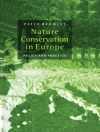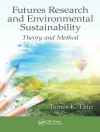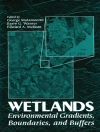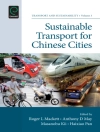This book is a comprehensive document visualizing the future of built environment from a multidisciplinary dimension, with special emphasis on the Indian scenario. The multidisciplinary focus would be helpful for the readers to cross-refer and understand others’ perspectives. The text also includes case studies substantiating theoretical research. This method of composition helps the book to maintain rational balance among theory, research and its contextual application. The book comprises selected papers from the National Conference on Sustainable Built Environment. The chapters provide varied viewpoints on the core issues of urbanization and planning. This compilation would be of interest to students, researchers, professionals and policy makers.
Daftar Isi
PART – 1: Land, Housing & Real Estate
Accessibility Analysis to Healthcare Infrastructure in Hill Areas: A Case of Shimla.- Conservation of Cultural Heritage: The Necessities, Trends and the Analysis of Current Practices.- Climate Responsiveness of Wada Architecture.- Investigating the Architectural Manifestations of Path and Place in Sacred Sikh Architecture.- Neighbourhood Planning.- Interrelation of Public Open Spaces and Social Behavior: A Chronological Perspective.- Provision of Ecosystem Services through Urban Parks in Mumbai.- Patterns of Flow: The Spatial Dimension of Water in the Desert.- Assessing Impact of Sea Level Rise Along the Coastline of Mumbai City Using Geographic Information System.- Sustainable Landscaping in Cyclone Prone Areas: A Paradigm Shift.- Urban Regeneration and Social Sustainability of Indore City.- Vernacular Architecture: A Sustainable Approach.- Urban Regeneration and Sustainability: Importance of Sustainable Transport Systems in the Concept of Eco-City.- Bansal Haveli at Bathinda: Sustainability Paradigm.
PART 2: Urban Regeneration & Sustainability
Politics of Water and Development: Case of Pune.- The Implementation of Phulkari Embroidery Pattern in Interior Decoration.- Religion Interacts with New Urbanism Holistic City Anandpur Sahib.- A Study on Geometrical Motifs with Special Reference to Old Havelis of Saharanpur.- Assessment of Mughal Mural Decoration on Contemporary Architecture of Agra & Jaipur.- Gender And Space in the Paintings of Raja Ravi Verma & Amrita Sher-Gil.- The Idea of Infinite in Indian and Western Art Perceiving it through the Intangible Cultural Identity.- Local Residents’ Perception of Social and Economic Impacts of Urban Riverfront Development: Case of Sabarmati Riverfront Development Project.
Tentang Penulis
Dr. Fumihiko SETA is currently an Associate Professor of the Department of Urban Engineering (DUE), Faculty of Engineering at the University of Tokyo. He was born in 1972 in Tokyo, graduated the University of Tokyo in 1995, worked at the University of Tokyo from 1998 to 2005 and Osaka City University from 2005 to 2012. His major is urban planning and regional development.
Dr. Arindam Biswas is Assistant Professor at Department of Architecture and Planning. He holds a Doctorate in Urban Planning from the University of Tokyo. He is the recipient of the DAAD Fellowship and the MEXT Scholarship. His research specializations are on urban & regional planning, inclusive growth, urban policy and governance, resilience and futuristic city planning. He is presently serving as a reviewer for Development in Practice, World Development, and the Journal of Architectural Engineering (ASCE).
Professor (Dr.) Ajay Khare, Founder-Director of School of Planning and Architecture, Bhopal, is a Fulbright Fellow and Charles Wallace Fellow. He was the first Indian recipient of Berkeley Teaching Fellowship. Professor Khare served as a member of Planning Commission working group on Technical education for 12th plan of India. He is a member of National Executive Committee of International Council of Monuments and Sites (ICOMOS India).
Professor (Dr.) Joy Sen is Head of RCG School of Infrastructure and Design, IIT Kharagpur. His areas of research are Community & Regional Planning Analyses & Programming, and Architecture and Planning. He holds a Ph.D from IIT Kharagpur and a Master’s from Iowa State University. He is currently involved in Sand HI project sponsored by MHRD. He is a reviewer of the Journal of Architecture and Associate Editor of CSVTU Journal. He has authored five books on Indian Heritage and Iconographic Documentation.












